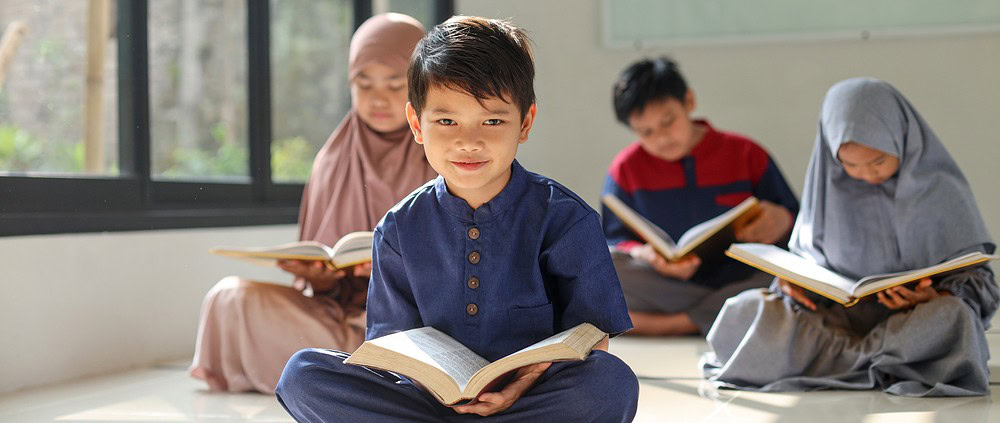Should I Obey My Parents if They Refuse To Let Me Study Islamic Sciences?
Answered by Shaykh Khalid al-Kharsa
Question
Should I obey my parents if they refuse to let me study Islamic sciences?
Answer
In the name of Allah, the Most Gracious, the Most Merciful,
Obedience to parents is obligatory in cases where someone else can fulfill the collective duty (fard kifaya) on your behalf. However, for fulfilling individual duties (fard ‘ayn), their obedience is not mandatory.
The Duty of Seeking Knowledge
There are two types of knowledge: that which is a collective duty (fard kifaya), and that which is an individual duty (fard ‘ayn).
Al-Haskafi said in his commentary on al-Tanwir, “Know that learning knowledge is a personal obligation (fard ‘ayn) to the extent necessary for one’s religion. It is recommended (mandub) to delve deeply into jurisprudence and the science of the heart. It is prohibited (haram) to learn philosophy, magic, etc.”
Ibn Abidin, in his commentary, said, quoting Imam al-‘Allami in his book al-Fusool:
“Among the obligations of Islam is to learn what one needs for establishing their religion, sincerity in actions for Allah the Almighty, and for social interaction with His servants. Every responsible male and female, after learning the science of religion and excellence (ihsan), must learn the science of ablution, bathing, prayer, fasting, the science of zakat for those who have the nisab, and Hajj for those on whom it is obligatory, and trade for traders, etc.”
He then said, quoting from Tabayin al-Maharim: “As for the collective duty (fard kifaya) of knowledge, it includes every science indispensable for the upkeep of worldly affairs, such as medicine, arithmetic, grammar, language, theology, Quranic readings, hadith chains, the division of wills and inheritance, writing, etc. For the individual duty (fard ‘ayn), one may leave to learn it without the permission of their parents, but for the collective duty (fard kifaya), their permission is necessary.” [Hashiyah Ibn Abidin, Volume 1, Page 108, Beirut, Dar al-Ma’arifah, 4th Edition, 2015]
[Shaykh] Khalid al-Kharsa
Shaykh Dr. Muhammad Khalid al-Kharsa is a distinguished scholar from Syria, born in Damascus in 1960. He holds a bachelor’s degree from the Faculty of Da‘wa Islamiyya in Tripoli, a higher diploma in Comparative Fiqh from the University of Omdurman in 1998, a master’s degree in Comparative Fiqh from the Faculty of Shari‘a and Law at the University of Omdurman in 2002, and a Ph.D. in Comparative Fiqh from the same institution in 2010.
He acquired knowledge and spiritual guidance from Shaykh Muhammad Salih al-Farfur, Shaykh Abdul Razzaq al-Halabi, Shaykh Muhammad Adib al-Kallas, and Shaykh Abdul Rahman al-Shaghouri, may Allah have mercy on them all.
He received Ijazas from several scholars, including Shaykh Muhammad Amin Siraj, Shaykh Abdul Ghani al-Daqar, Shaykh Muhammad Sa‘id al-Kahil, Shaykh Malik bin al-Arabi bin Ahmad al-Sharif al-Sanusi, Shaykh Muhammad Usman Bilal, the Mufti of Aleppo, and others.
Shaykh Khalid lived in Damascus for 52 years, where he engaged extensively in educational and social activities before being displaced from there. He moved to Istanbul at the end of 2015 and co-established “Markaz Jami‘at al-‘Ilm Wa al-Hidaya” within two months of his arrival. In Istanbul, he is active in educational roles. He serves as the director and teacher at the Sheikh Abdul Razzaq al-Halabi Institute, a lecturer at Dar al-Fuqaha, and a teacher at the Dar al-Funun Waqf.
His scholarly works and research include his tahqiq on “al-Rasa li al-Salihat min al-Nisa” by Hafiz Yusuf bin Abdul Hadi, “Adab al-Murta‘i in the Science of Dua (Supplication),” “al-Isti‘ana bi al-Fatiha,” “Rashat al-Aqlam – Explanation of Kifayat al-Ghulam” by Shaykh Abdul Ghani al-Nabulsi in Hanafi Fiqh, “al-Hada’iq al-Wardiyya fi Ajla al-Naqshbandiyya” by Khani, and “al-Arba‘in al-Tusiyya” by Muhammad bin Aslam. May Allah preserve him and make his contributions beneficial.
